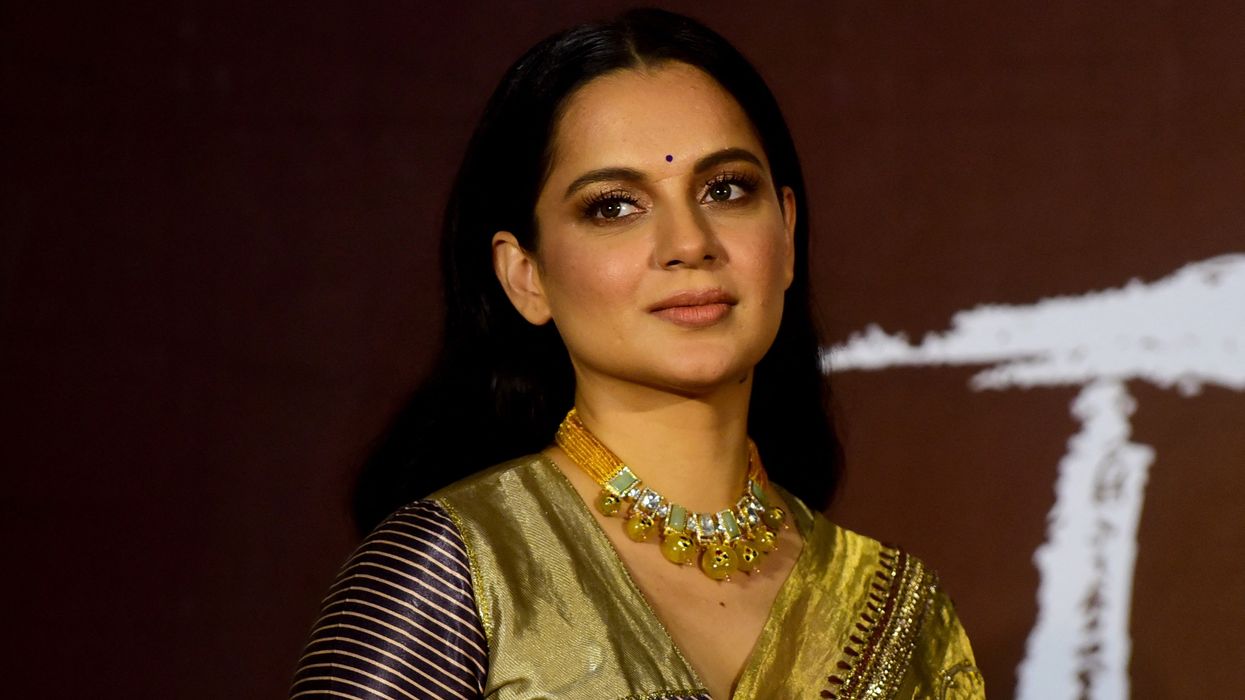Bollywood actress Kangana Ranaut is no stranger to making bold statements, both on and off the screen. Known for her fearless approach to the film industry and her outspoken opinions, she has once again sparked debate by dismissing the prestigious Academy Awards. Following the success of her latest film, Emergency, which has topped Netflix since its release, Kangana referred to the Oscars as “silly” and critiqued America’s global influence, claiming it bullies and suppresses developing nations.
The political drama, Emergency, directed by and starring Ranaut, delves into one of India’s most controversial periods, the Emergency imposed by Prime Minister Indira Gandhi in 1975. As the film has been celebrated for its nuanced portrayal of the political landscape and for Kangana’s performance, some fans suggested that the film deserved an Oscar nod. However, in her characteristic style, Kangana dismissed the idea, emphasising the importance of India’s own National Film Awards over international accolades.
A film challenging America’s global image
In response to a fan who tweeted that Emergency should go to the Oscars, Kangana shared her strong views on the social media platform. She responded by stating, “America wouldn’t like to acknowledge its real face, how they bully, suppress, and arm twist developing nations. It’s been exposed in Emergency. They can keep their silly Oscar. We have National Awards.”
Her sharp critique of the Oscars did not stop there. She went on to suggest that the U.S. is reluctant to recognise any media that sheds light on its imperialist tendencies and its treatment of developing countries. This perspective is particularly interesting in the context of Emergency, a film that looks inward at India's own political history while subtly weaving in a narrative about the larger power structures that have shaped global politics.
Kangana’s rejection of the Oscars can be seen as part of a larger conversation about the relevance of Western awards in a globalised world. In recent years, the Academy Awards have come under scrutiny for lacking diversity and favouring certain narratives that align with Western ideals. For Kangana, this moment is about reclaiming her work’s value on her own terms, without seeking validation from an institution she deems unrepresentative of global perspectives.
An unexpected wave of praise
Despite the controversy surrounding her views on the Oscars, Kangana has received widespread praise for Emergency. The film’s success on Netflix, where it quickly reached the number one spot, has been matched by positive reviews from both fans and industry professionals. Filmmaker Sanjay Gupta, known for films like Kaante and Shootout at Wadala, admitted that he had initially prejudged the film but was pleasantly surprised after watching it.
“Today I watched EMERGENCY by @KanganaTeam. Very frankly I wasn't planning to as I had prejudged it.,” he tweeted. “ I am so glad that I was wrong. What a fantastic film by Kangana both performance & direction. Top Notch & World Class.”
In response, Kangana thanked Gupta for overcoming his initial biases and encouraged the film industry to move past its prejudices. She said, “Film industry must come out of its hate and prejudices and acknowledge good work, thanks for breaking that barrier Sanjay ji, the barriers of preconceived notions.”
This exchange highlighted a broader issue within Bollywood, the tendency of some to dismiss Kangana’s work due to her outspoken nature. Kangana has long criticised the film industry for what she perceives as nepotism and favouritism. With Emergency, she seems to have broken through some of those barriers, at least temporarily, gaining respect from even her harshest critics.
The power of Kangana’s performance
Much of the acclaim surrounding Emergency has been directed at Kangana’s portrayal of Indira Gandhi. Viewers have praised her ability to transform into the former prime minister, capturing both the strength and vulnerability of the leader during one of India’s darkest periods.
Some fans have even called it her best performance yet, a claim that Kangana herself has acknowledged on social media. In one post, she reflected on whether her performance in Emergency could surpass her previous roles in iconic films such as Queen, Tanu Weds Manu Returns, Fashion, and Thalaivi. “People are calling my acting in Emergency amazing and my best ever,” she wrote. “Could I surpass Queen, TWM2, Fashion, Thalaivi? Watch Emergency and find out.”
For Kangana, this is not just another role, it’s a defining moment in her career as both an actress and director. With the success of Emergency, she continues to push boundaries, both in her artistic expression and in her public persona. Her rejection of the Oscars, coupled with her focus on national recognition, signals a shift in how Indian cinema can stand on its own merit, without the need for Western approval.
In a world where global recognition is often seen as the ultimate marker of success, Kangana’s unapologetic stance challenges the status quo, urging audiences to consider the value of local appreciation over foreign accolades. Emergency is more than just a film, it’s a statement of intent from one of Bollywood’s most fearless voices.





